Our two base camps could be considered polar opposites. Camp 1 sat upon a moraine that was part of a long moraine valley. The camp sat along the high bank of a glacial lake. You could see glaciers miles away. The weather for 90% of the time was fabulous. We were able to make a daily objective of what our goal would be for the day and get it accomplished. Base Camp 2 (Lil' Nug for Avy) is in a deep valley between several tall bedrock features.
IMG_1477.jpg Looking out at Base Camp 1
The weather at Base Camp 2 has made it very difficult to accomplish field research. We landed late on August 11th with an amazing moon rising as we were setting up camp. Hopes were high with the thought of the endless possibilities that this location has to offer.
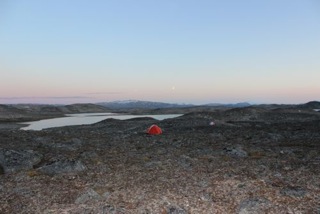
The next morning treated us to the most spectacular scenery. High cliffs, deep valleys and a stunning blue glacial lake.
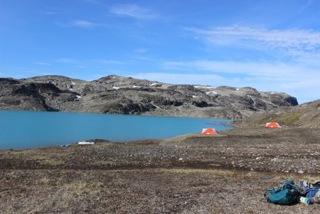
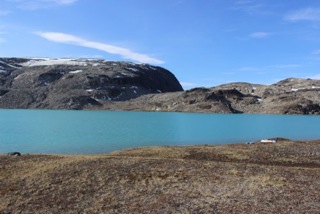
By midday on August 12th, Tuesday, a weather system blew in that reminded us that we are at the mercy of nature's forces. By dinner, we had gale force winds and rain that lasted at least 10 hours. (Polar Storm Avy)
Wednesday, treated us to a dreary and cool day. The weather forecast called for a chance of rain in the evening, so we decided not to venture too far from camp (we learned our lesson from Tuesday - make sure to read August 12th blog). Fortunately, two of us were able to core the two lakes that sat near camp while a team of two explored erratics nearby. We had been given a weather forecast that Thursday should be rain-free, so we planned on a full day hike to a nearby glacier. By dinner, the drizzle began and it rained continually all through the night.
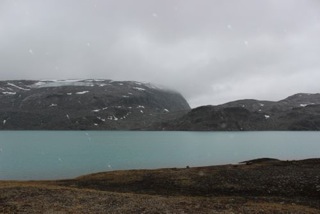
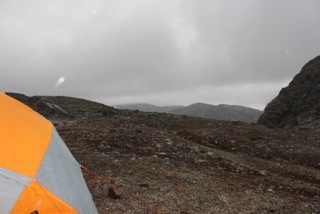
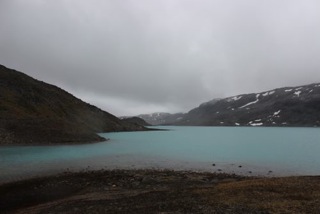
Presently, we all sit in Patience Tent (the kitchen tent) waiting for the rain to let up. The wind is building and the rain continues to fall; Polar Storm Christina. Some of us work on Google Earth images, pining over the areas we would love to gain access to, others work on a talk for an upcoming lecture, some do homework and I blog to you.
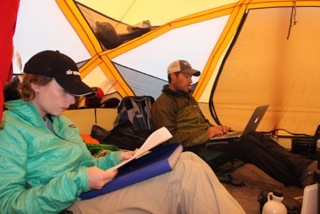
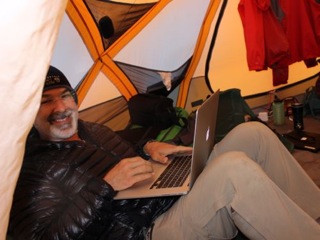
The temperature has not gone above 45 degrees F since Tuesday afternoon. For the last two nights, I have worn three top and three bottom layers, 2 pairs of socks, wool mittens and a winter hat to bed all surrounded by a down sleeping bag zipped up mummy style. There are no camp fires to warm chilled hands. If clothes are wet, you wear them to bed so that your body heat will help evaporate the water. Tricks of the trade.
Field research has many lessons to offer... lessons on science content, lessons on scientific methods and techniques, lessons on flexibility, lessons on patience, lessons on limits, and lessons about oneself.


Comments